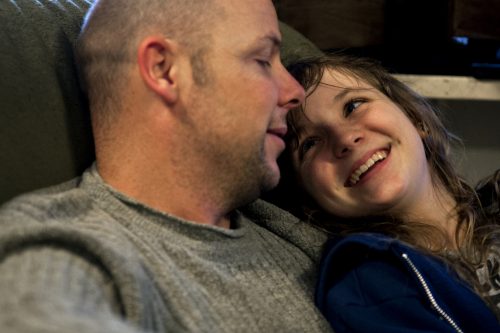Family is the best thing in this world. But what can you do with a loved one who is very impatient? Let me share with you my experience with many outbursts – how my husband’s fuse rising negatively affects our family.
My husband used to be a gentle spirit always had a clear head and was almost never cranky.

Whenever we would have relationship issues back in the day, he would always apologize to me or choose his words carefully even in stressful situations that were not entirely his fault. His emotions are always under control.
Body’s Stress Response to Expressing Anger
He would do that because he did not want to feel angry easily or have negative thoughts for long. It made all the difference, but that’s when he had self-control responded with normal emotions, and didn’t have such a short fuse.
Once we had kids, I also saw more of his patience in managing anger and negative feelings, considering they were not the quietest children. He was always calm and didn’t have violent outbursts even when they would always yell or scream or cry, and I would be the one getting a short fuse all the time. Whenever that happened, though, my husband would be like, “No, no, dear. It’s okay. You relax there.”
My Short-Tempered Husband’s Diagnosis And Warning
When my husband was 35 years old, he was diagnosed with diabetes. It did not genuinely come as a surprise since the same illness ran in his family for ages. He was only slightly frustrated because he was asked to choose between pills and injectable insulin. He eventually opted for the latter.
When my in-laws found out about his overall well-being, they were more concerned for the kids and me than for my husband. I found that a little odder than the medically reviewed diagnosis because, well, I was not the one who would have to get insulin injections for the rest of their life – it was their son. Besides, I couldn’t imagine my husband having this kind of personality.

Diabetes And Mental Health Risk Behaviors
Still, my mother-in-law told me indiscreetly, “John [my father-in-law] used to be as sweet and gentle as your husband right now. However, ever since he was diagnosed with diabetes and started getting treatment, he became more irritable than ever and his crankiness and high blood pressure were constant. It was once major depressive disorder before it became intermittent explosive disorder.” She was afraid that my husband would also have this kind of personality.
People taking insulin are at risk of experiencing low blood sugar as well as mood swings linked with it. When blood sugar levels rise or drop, it triggers feelings like anxiety, sadness, and depression. It can even lead to psychological issues and long-term health problems. There are physical side effects to being cranky, an example of this is an increased risk of stroke, heart attack, sleep, or other issues with blood vessels that can contribute.
I felt sorry for my mother-in-law. She didn’t even tell family members about his husband’s frequent outbursts and decided to support him. If she gave up and started feeling angry or having a bad mood or mindset, the family’s body and overall well-being would all fall apart.

Short Temper
Becoming Short-Fused: When Diabetes Changed Everything
I did not recognize much change in my husband in the first five years of taking insulin injections. He was still hard working; he was still helping out at home. No physical health issues whatsoever. However, I noticed my husband sometimes loses his nerves. In cases like that, he would be a little irritable he would be very cranky over things until we got to a colder place.
I only started seeing signs of a shift in his nature and attitude when our kids were old enough to learn how to drive. He did not want them to enroll in a driving school, saying that he could teach what the instructors could and more. My children were excited to do it and waved at me happily before they hopped in their father’s car.
However, later, my teenage kids were crying. They had never cried like that ever since they were eight years old, so something must have really upset them. I was already thinking about their dad’s crankiness.
“Dad was very mean to us. He lost his nerves once again. He was yelling in the parking lot, calling us dumb for not getting what he was trying to teach in the first five minutes. Why does he have such a quick temper?”

This anger problem of his is destroying our family. The behavior is ruining everyone.
Taking A Quick Action
You should know about me because I don’t have the same amount of patience as my mother-in-law. I was prone to not having patience, especially with people who have anger issues. As soon as my husband gave a sign and acted up like that – manifested rage by shouting, yelling without guilt, and complaining often – I called a mental health expert for professional guidance to have a word with him about his short temper. Again, my husband seemed annoyed when the mental health professional arrived, but I told him sternly that it was necessary to keep our family together and that his actions during his angry outburst were harming our family. That must have shaken him up a bit because he went to the study room for his first consultation with the counselor.
Look for a therapist or mental health counselor who is experienced with cognitive behavioral therapy and/or look for an anger management support group in your area.
I may seem harsh to other couples, but the children did not deserve to deal with a quick-tempered father. Also, I believed in nipping the problem in the bud before it could have a chance to grow and ruin our family forever. It may sound like a simple problem, but this anger problem could definitely debilitate a person and the people surrounding him. It may seem unnecessary and people would always say we all have bad behavior sometimes, having to lose it especially when affecting the kids is not healthy. It is not okay to let our moods or characters get the best of our loved ones. Losing patience is not just bad behavior. It can destroy and hurt everyone around you.
Try positive exercise as a coping mechanism when you feel the unmistakable signs of your anger building up, and try to focus on positive practices like deep breathing techniques to calm yourself down. Having any support group (whether it be your family, friends, colleagues, or anyone else) can help you control your anger. You could also keep a mood journal, journaling and mood tracking have been proven to be beneficial in many circumstances.
To know how the parent counseling session went and how it has helped with his short temper, please read the continue in the next article entitled Counseling 101: How To Keep Your Kids’ Respect.
Frequently Asked Questions
How Would You Describe A Cranky Individual?
A cranky individual is someone who often has a short temper and may need to learn how to manage their irritability effectively.
What Are Some Tips For Controlling Crankiness Or Impatience?
Some tips for controlling crankiness or impatience include taking a deep breath before speaking, choosing your words carefully to avoid sounding angry and practicing patience by trying to understand the situation from others’ perspectives.
Why do I get angry over small things?
Getting angry over small things can be caused by various factors, and it’s essential to seek advice, diagnosis, or treatment from a professional if anger issues are affecting your life negatively. Anger management techniques and therapy can help identify the underlying causes and develop strategies for better emotional regulation.
Is Having A Quick Temperament Hereditary?
What Is The Impact Of One’s Character On His Life?
Is Impatience Or Anger Curable?
What Are The Disadvantages Of Being Cranky Or Impatient?
How Can You Tell If Someone Is High-Strung?
Can a short-tempered person change?
How do you communicate with a short-tempered person?
What causes crankiness?
Is having a quick temper part of ADHD?
Is short temper genetic?
Is being short-tempered a weakness?
What medicine is good for short temper?

















